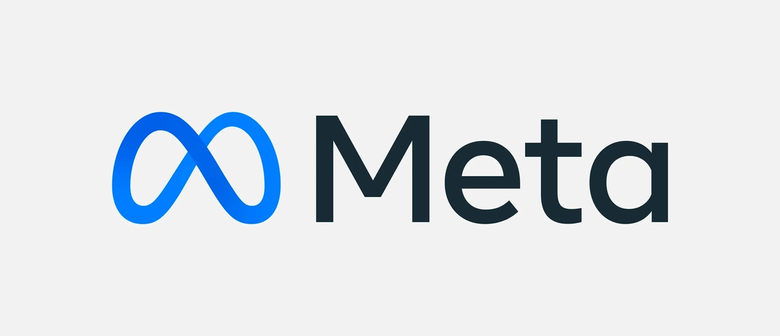Inside the FAANG Performance Review Process
Performance reviews can be daunting. Here's everything you need to know about the processes at FAANG.
Performance reviews have received a ton of bad press recently for being infantilizing, ineffective, and placing undue stress on employees. While major companies like Microsoft and GE have axed formal evaluations, FAANG companies continue to use them as a yardstick for performance. TINYpulse found that only 41% of employees think their organization’s performance review process is effective.
Detractors say that managers should share feedback with their employees at all times, not just during an annual or biannual review, and that feedback is only effective if given in the moment rather than months later.
Here’s a closer look at the performance review process at FAANGs.
Meta

The social media giant recently reduced its performance reviews from once every six months to once a year in response to employee feedback. Previously, Performance Summary Cycle (PSC) reviews would take place in January and July. However, the new changes won’t take effect until 2022.
“We are making this change to better reflect the direction of the company with remote work in mind and guided by our principles of fairness, simplicity and building for the long term,” Tracy Clayton, a spokesman for the company, said in a statement to Business Insider.
Meta uses a stack ranking system for its performance reviews, a practice in which managers are asked to grade their employees on a bell curve. Each grade goes to a fixed number of employees.
- “Redefine,” the highest grade, is given to fewer than 5 percent of employees
- “Greatly exceeds expectations”: 10 percent
- “Exceeds”: 35 percent
- “Meets all”: 35 to 40 percent
- “Meets most,” a low grade that puts future employment at risk, goes to most of the remaining 10 to 15 percent
- “Meets some” grades are extremely rare and are seen as an indication that you’re probably getting fired, according to multiple employees.
- “Does not meet” is exceptionally rare, as most employees are fired before they get to that level.
In order to receive a final “grade,” employees perform a self-assessment and solicit feedback from five other employees—typically their manager and closest colleagues. Peers can provide feedback directly to the employee or send their review to the employee’s manager.
Managers then read through the peer feedback and self-assessment and determine a “performance assessment” or rating of the employee’s performance over the last six months, and notes whether the employee is ready for a promotion.
Bonus compensation at Meta is strictly tied to how well you do in your performance review. The social media giant made an exception in mid-March 2020 during the start of the coronavirus pandemic, when it announced it would give employees an extra $1,000 in their next paycheck and an “Exceeds expectations” performance review for the first half of the year, thereby ensuring that all employees receive their biannual bonus.
Normally, employees with problematic performance are placed on a 4-6 week performance improvement plan. However, the outcome of your performance review at Meta should not come as a surprise as feedback is given on a consistent basis.
👉 Want to learn more about Meta's performance reviews? Read Next: Behind Performance Reviews + Bonuses at Facebook
Apple

- 360-degree assessments
- Annual performance review
The Apple performance review process is mostly kept under wraps. However, what we do know is that high performers are highly rewarded (typically with stock options), and that benefits vary depending on individual performance and an employee’s tenure in the company.
Performance is measured based on results, not effort. Performance evaluations are done annually, where each employee works with 3-4 executives to understand their strengths and weaknesses, areas to improve and those they are excelling in.
When talking about the Apple performance review cycle, an employee on Quora said, “Apple divides employee performance into three categories: teamwork, innovation, and results.” Employees are given one of three grades for each criterion: “needs improvement,” “met expectations” and “exceeded expectations.”
If you're unfortunate enough to fall into the Apple performance improvement plan, you might get lucky. Apple has one of the higher turnarounds for employees on PIP at 50%. According to employees, you have to really mess up to be in this position.
Amazon

Recently leaked documents, allegedly from Amazon, suggest the tech giant uses a controversial stack ranking system to evaluate its employees (AKA rank and yank or “purposeful Darwinism” as described by one employee in a Glassdoor review). This means that employees are graded on a curve in an annual review. A certain percentage of its workforce is required to be ranked at the very bottom. Consequently, even employees who are performing well may be ranked at the bottom.
Until recently, employees received one of three grades during the Amazon performance review: top tier (TT), highly valued (HV), and least effective (LE). Documents show that Amazon expects 20% of its employees to be top tier, 70% to be highly valued, and 5% least effective. This year, Amazon expanded the “HV” rating with “HV1,” “HV2,” and “HV3” to add depth to teach evaluation. Employees who achieve a rating of HV1 or higher are eligible for a base-pay increase, according to internal documents.
Amazon also uses continuous feedback using its “Anytime Feedback” tool, an internal platform where workers can anonymously praise or criticize their colleagues. If you fail, you are put on a three-month performance improvement plan.
“The level of performance that would have been acceptable five years ago will get you canned today,” one employee wrote in a review on Glassdoor. “It's a kind of crucible that'll help you develop a harder edge, if you can survive, that can serve you well in your career and in life, but it's often not a pleasant experience.”
Netflix

- 360-degree performance reviews
- Regular informal reviews
Netflix’s culture of candor features prominently in its approach to performance reviews. The streaming giant holds 360-degree reviews in March and April. A 360-degree review involves getting feedback from colleagues and superiors as well as performing a self-assessment. However, expect to receive copious feedback throughout the year in the form of regular, informal reviews that use the Stop, Start, Continue framework. Employees typically meet one-on-one with their bosses weekly or biweekly.
During 360-degree reviews at Netflix, employees can send feedback to anyone in the company--from interns to the CEO--and that person’s manager and superiors will be able to see it. Initially, Netflix used a software system that allowed employees to leave anonymous reviews before shifting over to a signed system for transparency.
Insiders say failing to act on feedback given during your performance review—even for seemingly minor comments—can impact the longevity of your career at Netflix. Generally speaking, Netflix culture has been described as cutthroat, priding itself on building a “dream team” exclusively made up of employees who are “extraordinary.”
Netflix doesn’t necessarily have clear-cut performance metrics, which can make it hard for employees to gauge their own performance. Former Netflix employees who spoke to Business Insider recommended asking your manager how they judge people on the team. Some managers do give tactical and strategic goals, others rely on more nebulous objectives like “innovation.”
Unsure if you’re doing a good job at Netflix? Insiders say success is typically measured by adjustments in compensation and level of responsibility rather than formal title promotions, seeing as Netflix has few title levels. In engineering, for example, there are only four levels—senior engineer, manager, director, and VP.

Google completely overhauled and changed its performance review process in May of 2022. The new process is called GRAD, or Google Reviews and Development.
According to internal documents reviewed by CNBC, "It’s part of an effort to streamline the evaluation process, limiting reviews to once a year, instead of twice, and putting more responsibility in the hands of managers rather than relying heavily on peer reviews."
With the GRAD system, employees will get clearer expectations for OKRs. They'll also do quarterly check-ins with their managers to review their career development.
Google is using a five-scale system for employee ratings:
- Transformative impact
- Outstanding Impact
- Significant impact (most will be here)
- Moderate impact
- Not enough impact
Google's promotion process will also change. Employees aren't expected to already perform at the next level to show that they're capable and to be considered for a promotion, but there must be a business need for a promotion to happen.
According to CNBC, the company said “Googlers will then be considered for promotions if they demonstrate signals for success at that level of work."
It'll be up to an employee's manager to determine whether they have demonstrated the skills necessary for the promotion.
👉 Read our performance review guide to help you through your next review!
Banner image from India Today
The information provided herein is for general informational purposes only and is not intended to provide tax, legal, or investment advice and should not be construed as an offer to sell, a solicitation of an offer to buy, or a recommendation of any security by Candor, its employees and affiliates, or any third-party. Any expressions of opinion or assumptions are for illustrative purposes only and are subject to change without notice. Past performance is not a guarantee of future results and the opinions presented herein should not be viewed as an indicator of future performance. Investing in securities involves risk. Loss of principal is possible.
Third-party data has been obtained from sources we believe to be reliable; however, its accuracy, completeness, or reliability cannot be guaranteed. Candor does not receive compensation to promote or discuss any particular Company; however, Candor, its employees and affiliates, and/or its clients may hold positions in securities of the Companies discussed.
